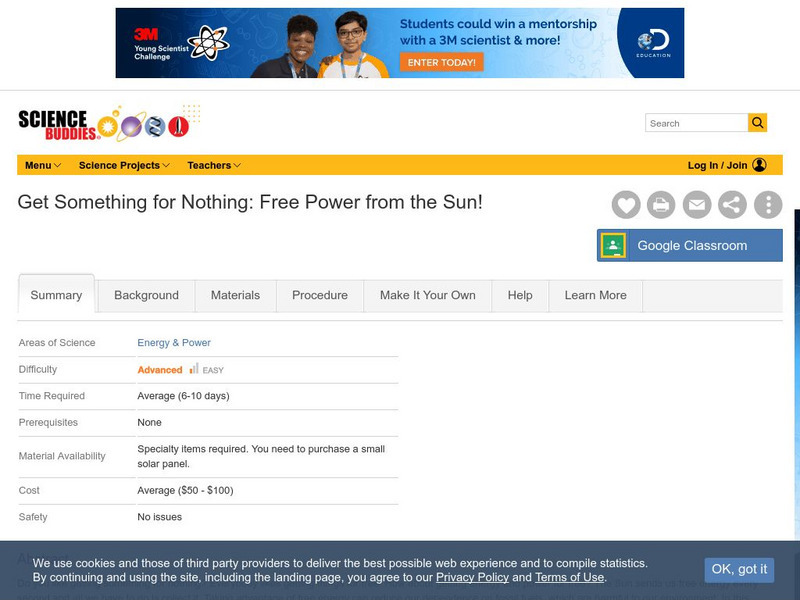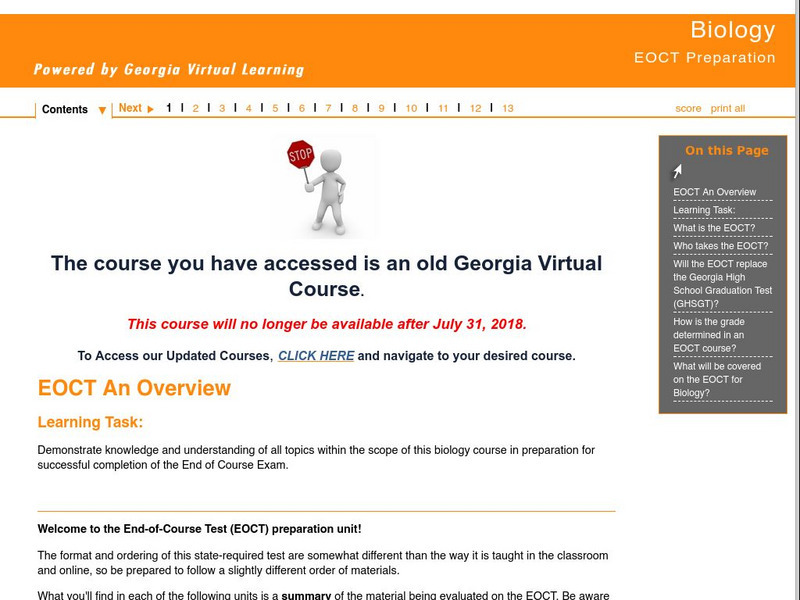Hi, what do you want to do?
Curated OER
Living and Non-Living
Fourth graders are divided into small groups and collect 4 objects from the playground. They take 5 to 10 minutes to classify their groups and discuss their findings including the terms "living" and "non-living". As a class they discuss...
Curated OER
Making a Brassica Model
Pupils apply skills they have learned to construct an accurate model of the Brassica and then work together on a group project. They analyze how the parts of a system go together, and how these parts depend on each other. Finally,...
Curated OER
Going on a Living and Nonliving Hunt
Students distinguish between things that are living, things that were once-living, and things that are nonliving. They graph results and create a compare and contrast Venn Diagram. They read 'Living and Nonliving' by Angela Royston.
Curated OER
Eating Under the Rainbow
Students investigate the lure of snack-food advertisements to explain how snacks can fit into a healthy diet.
Curated OER
Launching a Defense; Understanding the Human Immune System
High schoolers research online to answer and develop questions about immune system, create Powerpoint presentation to share information with classmates, and assimilate information into pictorial and/or graphical description of immune...
Curated OER
Launching a Defense; Understanding the Human Immune System
Students research online to answer and develop questions about immune system, create Powerpoint presentation to share information with classmates, and assimilate information into pictorial and/or graphical description of immune system.
Curated OER
The Effects of Temperature Variations on the Heartbeat Rate of Daphnia
Students use DigiScope technology to investigate Daphinia, popularly known as water fleas. They design, conduct, and report on an experiment to determine the effects of varying water temperatures on the heartbeat rate of Daphnia.
Curated OER
Process of Mitosis
Students discover through whole-class role play, the process of mitosis. They will all become a chromosome and demonstrate how they line up 23 to 23.
Curated OER
The Chemistry of Coal
Students investigate the chemistry of coal. This lesson serves as a review of conservation of mass, simple reactions and equation balancing. During the lesson, students research chemical components of coal, as well as environmental...
Curated OER
Native American Tribe Cultures
Third graders choose two Native American tribes to compare and contrast using an assigned website. They complete a chart that shows how the tribes are the same and different. Using information gathered on their charts, they answer...
Curated OER
Smallest Thing
High schoolers compare characteristics of myobacteria and viruses to determine which is the smallest life form. They read and discuss an article that presents different viewpoints on the definition of life to determine their own viewpoint.
Curated OER
Here Today, Gone Tomorrow....?
Understanding the effects of an introduced species on the population of native species
Curated OER
Land Associations
Students identify and explore life forms of various biomes, define transitional regions, examine effects of abiotic and biotic interactions, research a biome, and produce newspaper that features environmental information. Lessons all on...
Curated OER
Foods for Better Health
Students define biotechnology and discuss the economic impact of biotechnology. They also describe what a 1015 onion and a slow-softening tomato are and how they are produced. They examine the safety of genetically-engineered or altered...
Curated OER
Dinoflagallates of Bioluminescent Bay
Fifth graders research dinoflagallates of the Bioluminescent Bay. They research the Internet for pictures of the Bio Bay and discuss the difference between ecosystems and ecoregions. They research a marine ecoregion and create a poster.
Curated OER
Impace of Humanities growth on the Surrounding Animal Population
Fourth graders read books about endangered animals. Using Kidspiration software, 4th graders create a presentation illustrating the plight of endangered animals. They identify problems, develop a graphic organizer, and explain the origin...
National Institute of Educational Technologies and Teacher Training (Spain)
Ministerio De Educacion: La Tierra: Un Planeta Habitado
Find out which factors make life possible on a planet. Learn about the common features and the functions and the diversity of living things, environments, sizes, shapes and means of eating. It contains 19 interactive activities and many...
Science Buddies
Science Buddies: Get Something for Nothing: Free Power From the Sun!
Taking advantage of free energy can reduce our dependence on fossil fuels, which are harmful to our environment. In this science fair project, you will work with a solar panel, which is a collector of free energy, and investigate how...
Georgia Department of Education
Ga Virtual Learning: Biology: Eoct Preparation
Students participate in this comprehensive review to demonstrate knowledge and understanding of all topics within the scope of this biology course in preparation for successful completion of the Georgia End of Course Exam. It can also be...























